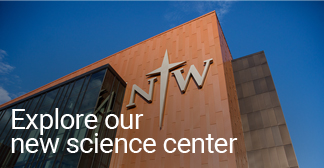Chiropractic
Chiropractic is a vital part of today’s health care system. The need for qualified chiropractors continues to grow with the public’s increased awareness of the benefits of chiropractic health care.
Students in Northwestern’s pre-chiropractic program must complete a minimum of 90 credits, including the recommended courses indicated below. A large percentage of students accepted by schools of chiropractic have earned a B.A. degree.
Recommended courses
Courses in writing: 6 credits
Humanities electives: 16 credits
Psychology elective: 4 credits
Electives: 32 credits
CHE 111 - General Chemistry
(4 credits) An introductory course in chemistry that emphasizes physical and inorganic concepts, problems and calculations. Topics include chemical reactions, stoichiometry, properties of gases, thermochemistry, theories of atomic structure, and chemical bonding. The general chemistry sequence (Chemistry 111 and Chemistry 112) is recommended for students with good math / science preparations who intend to proceed to advanced courses in chemistry, the biological sciences or engineering. Prerequisites: high school chemistry and ACT math score of at least 24 (SAT 570 or above). Note: Three lectures and one three-hour laboratory period per week. A fee is associated with this course.
CHE 112 - General Chemistry
(4 credits) A continuation of Chemistry 111. Topics covered include kinetics, thermodynamics, chemical equilibria, acid-base chemistry and nuclear chemistry. Prerequisite: CHE111 or consent of the instructor.Note: Three lectures and one three-hour laboratory period per week. A fee is associated with this course.
CHE 321 - Organic Chemistry
(4 credits) The study of carbon compounds and their functional groups, including nomenclature, synthesis, reactions, structures, mechanisms and spectroscopic analysis. Prerequisites: CHE102 or 112 or permission of instructor.Note: Three lectures and one three-hour laboratory period per week. A fee is associated with this course.
CHE 322 - Organic Chemistry
(4 credits) A continuation of the study of carbon compounds and their functional groups, including nomenclature, synthesis, reactions, structures, mechanisms and spectroscopic analysis.Prerequisite: CHE321.
PHY 111SN - General Physics I
(4 credits) (NWCore option under Science and the Natural World) This is the first in a two-course algebra-based sequence. Topics include kinematics, Newtonian mechanics, energy, momentum, gravity, atomic physics, thermodynamics, and simple harmonic oscillations. Prerequisite: C- or higher in MAT109QR, ACT math score of 24 or better (SAT 570 or above), or consentof the department chair.Note: There is a laboratory component to this course.
PHY 112 - General Physics II
(4 credits) This is the second in a two-course algebra-based sequence. Topics include electricity, magnetism, electromagnetic waves, electromagnetism, and optics. Prerequisite: successful completion of PHY111SN with a grade of C- or better,or consent of department chair. Note: There is a laboratory component to this course.
Choose two courses: 8 credits
BIO 115SN - General Biology: Molecular and Cellular Biology
(4 credits) (NWCore option under Science and the Natural World) An introduction to molecular and cellular biology, with an examination of the processes common to living organisms and an introduction to the diversity of life, emphasizing unicellular organisms. This introduction will provide students with a basic understanding of macromolecules, cell structure and function, respiration and photosynthesis, the cell cycle, meiosis, genetics, mechanisms of evolutionary change, and Christian perspectives on evolutionary biology. Prerequisite: Combined Math + Science ACT of at least 44, sophomore standing, or permission of instructor.Note: Three lectures and 3 hours of laboratory work per week. A fee is associated with this course.
BIO 203 - Microbiology
(4 credits) A study of the morphology and physiology of microorganisms with special emphasis on bacteria and viruses. Those organisms that have an economic or medical importance will be highlighted, and basic laboratory techniques will be stressed. Prerequisites: BIO115SN or BIO122 and CHE102 or CHE108SN or CHE112.Note: Includes 3 hours of lab per week. A fee is associated with this course.
BIO 221 - Human Anatomy
(4 credits) A study of the gross structure of the systems of the human body. Prerequisite: BIO102SN, 115 or permission of instructor.Note: Includes 3 hours of lab per week. A fee is associated with this course.
BIO 222 - Human Physiology
(4 credits) A study of the mechanisms by which the human body functions. Emphasis will be given to nerve and muscle function, and thereafter to hormonal control and the integrated systems that allow for respiratory, digestive, excretory and reproductive activities. Prerequisites: BIO102SN or 115 and CHE101SN, 102 or CHE111, 112 or permission of instructor.Note: Includes 3 hours of lab per week. A fee is associated with this course.
BIO 310WI - Cell Biology
(4 credits; alternate years, consult department) (Writing intensive) A study of the structure and function of cells and of their subcellular organelles. Structural detail will be described to the level of macromolecular assemblages. Wherever possible, function will be described in terms of the molecular mechanisms that underlie biological processes. Prerequisites: BIO115SN, 116, and CHE101SN, 102, or CHE111, 112. Note: Includes three lectures and 3 hours of lab per week. A fee is associated with this course.
BIO 326x - Biochemistry:Proteins and Metabolism
(4 credits) A fundamental course surveying biomolecules, catabolism, bioenergetics and biosynthesis. Prerequisites: CHE321 and 322. Cross-Referenced: Cross-referenced in chemistry.Note: Includes 3 hours of lab per week. A fee is associated with this course.

